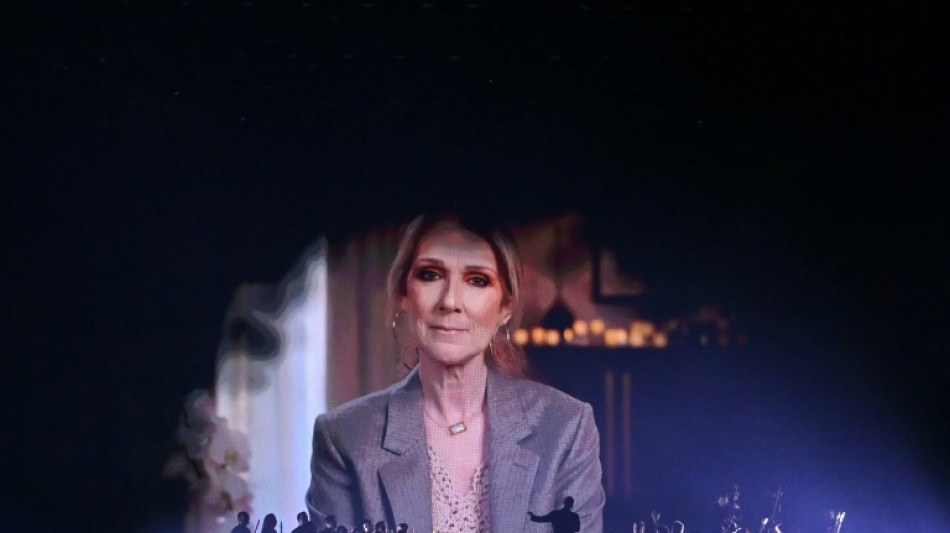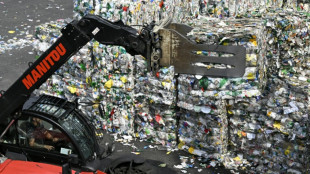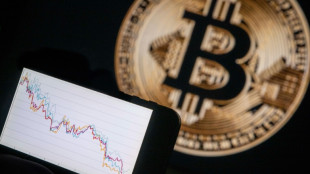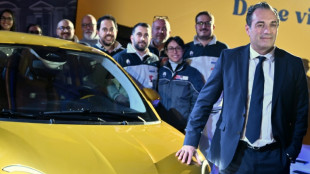

Eurovision door still open for Celine Dion comeback
As excitement builds for Saturday's Eurovision final, one question looms large: could superstar Celine Dion, now in fragile health, make a show-stopping appearance, 37 years after winning the competition?
Dion became a global music icon, selling albums by the millions and staging groundbreaking sell-out concerts around the world.
But she has never forgotten the role the song contest played in launching her on the international stage.
Dion was 20 and little-known outside her native French-speaking Quebec province in Canada when she won Eurovision in 1988, guesting for Switzerland, with the song "Ne Partez Pas Sans Moi".
That gave Switzerland the right to host Eurovision 1989 in Lausanne, where Dion opened the TV extravaganza with her winning French-language song.
She then premiered the single "Where Does My Heart Beat Now" -- heralding her career switch into English, which set her on the path to global chart domination.
With Eurovision 2025 returning to Switzerland, this time in Basel, organisers opened the door for Dion to appear before an ever-appreciative audience.
However, with the singer battling a debilitating health condition and rarely appearing in public, uncertainty reigns over whether she might take a heartwarming trip down memory lane and appear at the world's biggest televised live music event.
- Stiff Person Syndrome -
Dion, now 57, first disclosed in December 2022 that she had been diagnosed with Stiff Person Syndrome, a painful autoimmune disorder which is progressive and for which there is no cure.
She was forced to cancel a string of shows scheduled for 2023 and 2024, saying she was not strong enough to tour.
But she made a surprise, show-stopping performance from the Eiffel Tower at the Paris 2024 Olympics opening ceremony.
Eurovision organisers are tight-lipped as to whether Dion might spring a similar star turn in Basel, despite a video message from her screened at Tuesday's first semi-final.
"I'd love nothing more than to be with you in Basel right now," Dion said, in front of a backdrop of flowers and candles.
"Winning the Eurovision Song Contest for Switzerland in 1988 was a life-changing moment for me.
"Music unites us -- not only tonight, not only in this wonderful moment. It is our strength, our support, and our accompaniment in times of need."
- 'Wait and see' -
Eurovision director Martin Green told AFP the situation had become a great guessing game.
"Wait and see," he said, cryptically.
Given the show's giant cast and crew -- and 6,500 fans watching the untelevised public dress rehearsals -- Green said there was no point asking people to keep a secret.
However, he said people could be brought on board in keeping a surprise -- the approach successfully taken when he oversaw the London 2012 Olympics ceremonies.
Saturday's final has been micro-rehearsed down to the last second, but co-presenters Sandra Studer and Hazel Brugger admitted they were in the dark.
"There is still some hope that she could come. Honestly, we don't know -- and that's not a lie," said Studer, who represented Switzerland at Eurovision in 1991, three years after Dion.
"She might decide to come but we don't know," Studer said, adding that they had prepared as if Dion would not be there.
"We love her so, so much and it would have meant the world to us to have her with us."
R.Evans--VC







